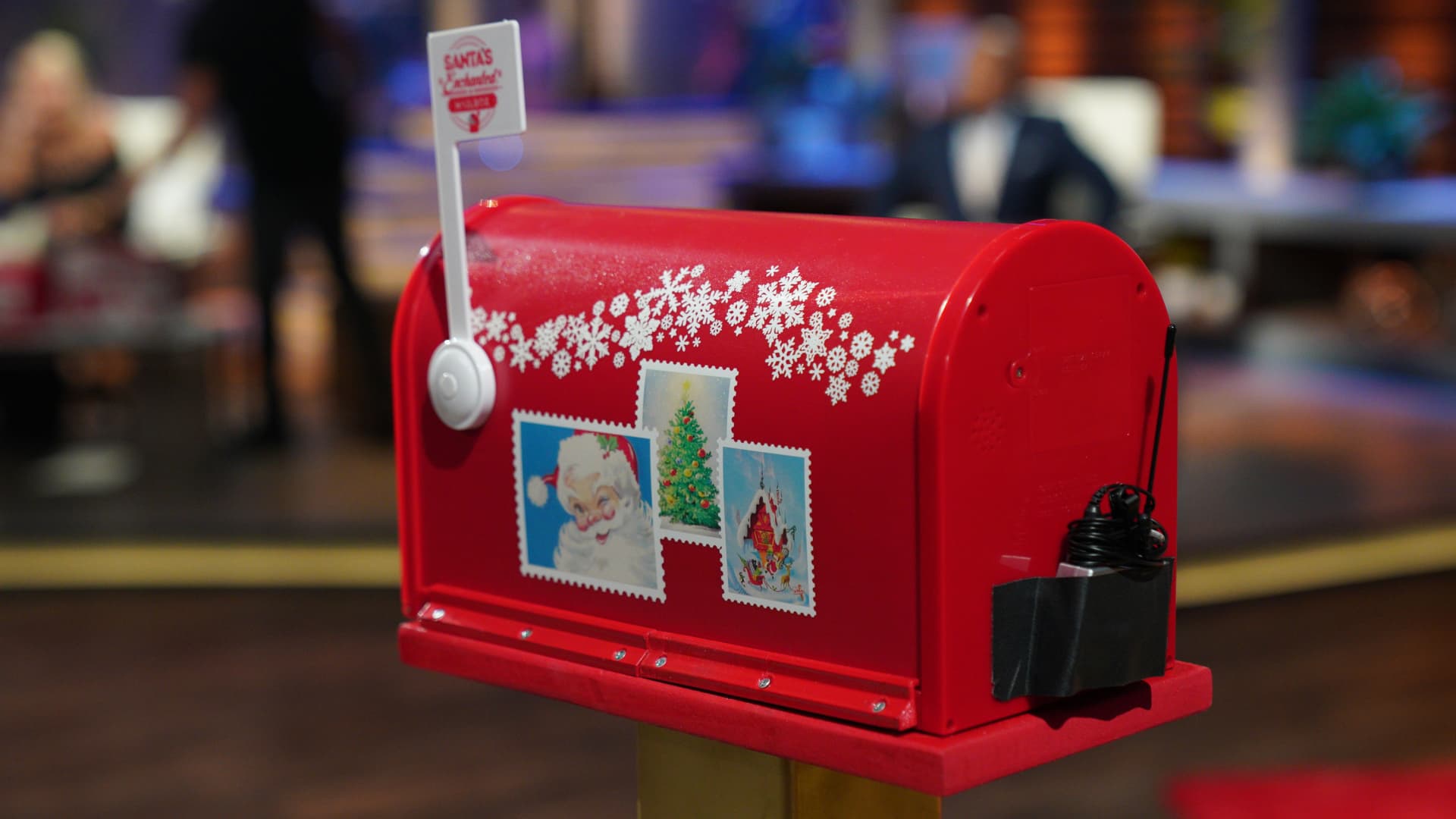
Sometimes, even a great business or product idea can't save you from the perils of inexperience.
On Friday's episode of ABC's "Shark Tank," a husband-and-wife pair of business owners learned that lesson the hard way.
The duo, Chris and Elisa Cirri, pitched their Wallingford, Connecticut-based start-up, called Santa's Enchanted Mailbox, on the holiday-themed episode. The company, which which makes a decorative mailbox that stores kids' letters to Santa Claus, took home $120,000 in sales during its first year of operations in 2018.
The couple sought an investment of $150,000 in exchange for a 30% stake in their business, but not a single Shark bit. The reason: a huge mistake the Cirris made shortly after launching their company.
We're making it easier for you to find stories that matter with our new newsletter — The 4Front. Sign up here and get news that is important for you to your inbox.
"This is a lesson about licensing," Mark Cuban told the couple. Kevin O'Leary agreed, noting that he "wouldn't have done it that way."

In 2018, the couple signed a three-year licensing agreement that expired shortly before the taping of Friday's "Shark Tank" episode. Yet, the Cirris said, they were still paying a significant markup to their former partner, driving manufacturing and shipping costs up to $17.25 per mailbox.
Money Report
It meant they had to sell their product at $49.99 per unit, far too expensive for most consumers. At one point, the Cirris said, they sold $1.7 million worth of mailboxes to an unidentified "big-box retailer" — but the product only started selling once the retailer lowered the price per unit to $24.99.
It's unclear whether the Cirris were contractually obligated to keep paying that markup, or if they simply couldn't find a less expensive alternative. Either way, they asked for help reducing those costs.
The Sharks declined, saying the whole situation was far too messy to deal with.
"There's a lot of complexities for a simple business. Your relationship with your former licensee, your manufacturing relationship," Cuban told the Cirris, noting that the couple was already too late to sort out those issues before the 2021 holiday shopping season.
"That's just a big hill to climb," Cuban said. "So for those reasons, I'm out."
Fellow Shark Lori Greiner liked the Cirris' product, but said she didn't think they could reduce costs without regaining control over their manufacturing — and expressed displeasure that they didn't pitch any of their own cost-trimming ideas.
The contract they signed in 2018, she said, was a deal-breaker even three years later. "Licensing is OK," she said. "But it's a huge lesson on the deal that you did."
Chris Cirri chalked it up to naivete. "We came into this very inexperienced as entrepreneurs," he told the Sharks. And it caused him and his wife to leave "Shark Tank" empty-handed.
Sign up now: Get smarter about your money and career with our weekly newsletter
Don't miss:
How this 15-year-old's apparel start-up notched millions in sales — and a $300,000 'Shark Tank' deal






